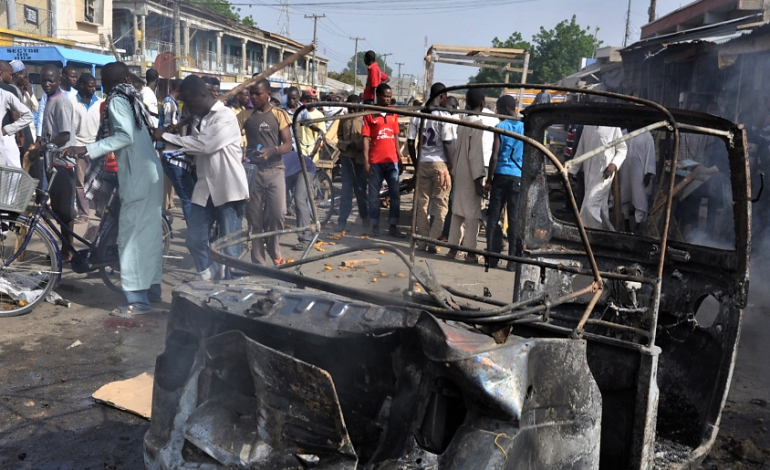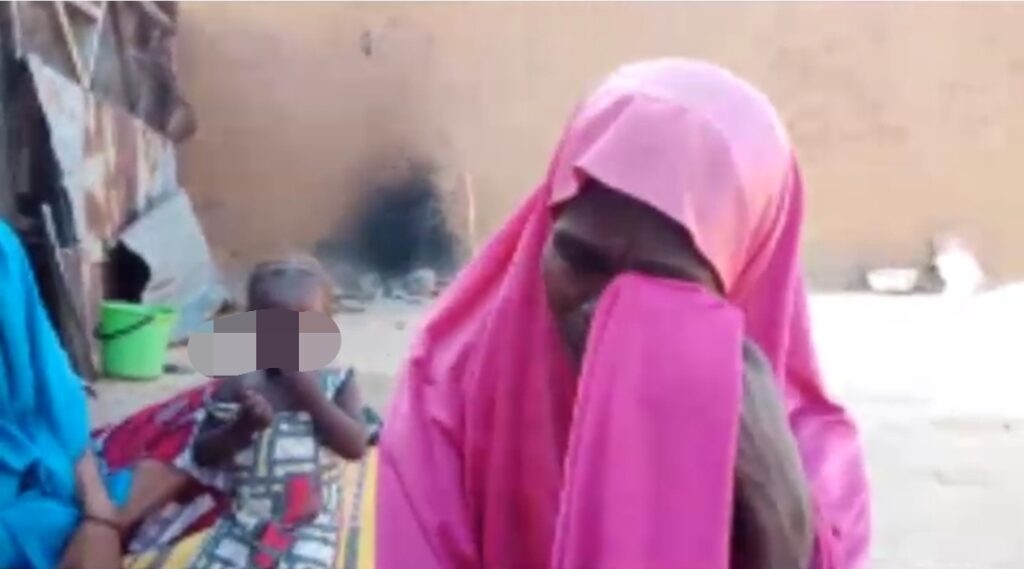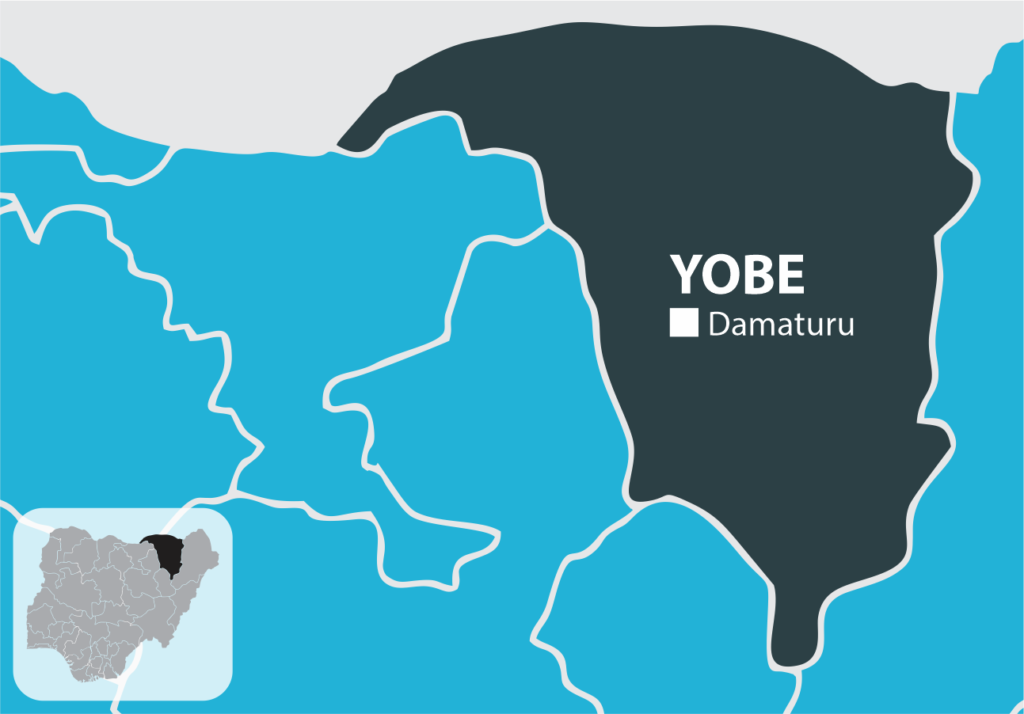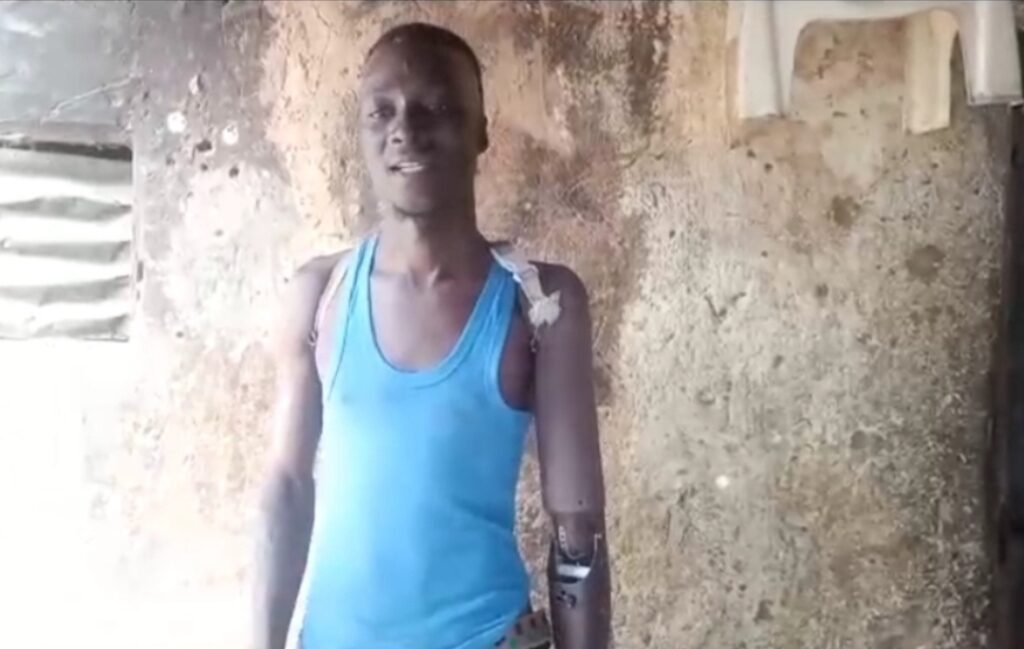Victims Of Damaturu Bombing Share Painful Experiences 7 Years On
The bomb blast, which erupted at a crowded motor park in Northeast Nigeria, claimed many lives and left many more with injuries and losses they have to live with for the rest of their lives.

Muslims were preparing to gather for the late afternoon prayer in Damaturu, capital of Yobe State, Northeast Nigeria, on Feb. 15, 2015, when an explosion echoed through the city with a quaking impact.
The blast, a first of its kind since the Boko Haram insurgency erupted in the region six years earlier, occurred at the town’s main commercial motor park that doubles as a mini market. A female suicide bomber who pretended to be a traveller had blown herself up inside a vehicle waiting to be loaded.
The terror group is notorious for its use of girls as suicide bombers. Between 2014 and 2018, according to the Combating Terrorism Center, about 468 girls and women were deployed by the group for hundreds of such attacks, which killed about 1,200 people.
For the Damaturu incident, the official toll from the police said 10 persons were killed while 31 others got injured. The explosion, which came a few days after the police divisional office adjacent to the park was burnt, was blamed on Boko Haram terrorists, who had attacked the capital city several times already.
The government had ensured that the dead were buried, survivors treated, and families condoled with. But the weight of the losses and the attendant pains suffered by both survivors and families of the victims seem too heavy to shoulder.
More than seven years later, the eyes of Habiba Umar, a widowed mother, were still filled with tears as she recalled how she lost her husband and daughter.
“God has blessed me with 10 children in my marriage. Some are in school, some are learning trades because I cannot afford to pay for their school fees. But I lost one, my eldest daughter, to the bomb blast,” she said.
“My dear husband had stepped out of the house to perform the later afternoon prayers shortly after I sent my daughter on an errand to the market to get us stuff to cook the evening meal. But both of them never returned home alive.”
Habiba was about to perform her prayers when she heard the deafening explosion. The plastic kettle she held dropped as she invoked God’s protection in Arabic.
“I never knew it was a bomb blast until some neighbour came to inform me,” she said. “My heart sank as I later learned that the blast occurred at the Damaturu motor park where my daughter had gone to buy some groceries for us.”
When she could not reach her husband, Habiba ran to the market. But the scene had been cordoned off by the security forces and she could not get close. She kept yelling her daughter’s name but no answer came from the crowd. She later had to return home to check if her husband and daughter were back. They weren’t.
“It was later someone came to inform me that I should go to the hospital and check because some children were among the casualties.”

Habiba later found her daughter’s body among the corpses taken to a morgue from the scene of the blast. She then took the body home for burial.
She waited all day for her husband to return, but he was nowhere to be found.
“A search party went around the likely places my husband used to visit, but no one could find him. So we had to allow the cleric to perform the funeral rights before nightfall,” she said.
She has not seen him since that day. So, while she knows what killed her daughter, she is still in the dark about what took her husband.
“Some people said they saw him among those fleeing as the military continued to fire their guns after the blast. We have not seen him or anyone who looked like him. He only left home to go and pray in the mosque. It is seven years now and he never came back.”

Habiba is now the family’s breadwinner, a task that has taken a serious toll on her physical and mental health.
“I have never envisaged a life without my husband – not at this time of our life,” she told HumAngle.
“Now I have to do everything for the family. But it seems I am failing in my responsibility because I cannot even finance their education. When death visits a family, it is always very painful; but the pain kills when the one taken by death is the head. No one is helping us.
“Sometimes one would find it difficult to sleep at night whenever the memories gush back. The trauma worsens when you hear the stories of missing or abducted persons returning home or rescued from captivity. I still look at the door to see if my husband would come in through it and say, ‘I am back home.’”

Mohammed Danladi, another victim of the bombing, has had to depend on an artificial limb since the incident.
Before the tragic event, Danladi was a butcher, happily married with two children. He would later be informed on his sick bed that his dear wife had died due to the blast.
“I had earlier stepped outside the market with my friend. Upon our return, the explosion occurred and I became a direct casualty,” he recounted.
“I spent at least three years taking medication until the amputated hand healed. I got my artificial limb fixed for me at the University of Maiduguri Teaching Hospital. I have two children from my late wife, but now they can’t even live with me, so they are currently with my mother. I miss my wife so much and I miss being a whole human, but I give all thanks to God that my life was spared that day.”
He does not feel complete with the artificial limb. “The hand is useless,” he observes, “because I cannot use it effectively like I used to.”
Support Our Journalism
There are millions of ordinary people affected by conflict in Africa whose stories are missing in the mainstream media. HumAngle is determined to tell those challenging and under-reported stories, hoping that the people impacted by these conflicts will find the safety and security they deserve.
To ensure that we continue to provide public service coverage, we have a small favour to ask you. We want you to be part of our journalistic endeavour by contributing a token to us.
Your donation will further promote a robust, free, and independent media.
Donate HereStay Closer To The Stories That Matter




